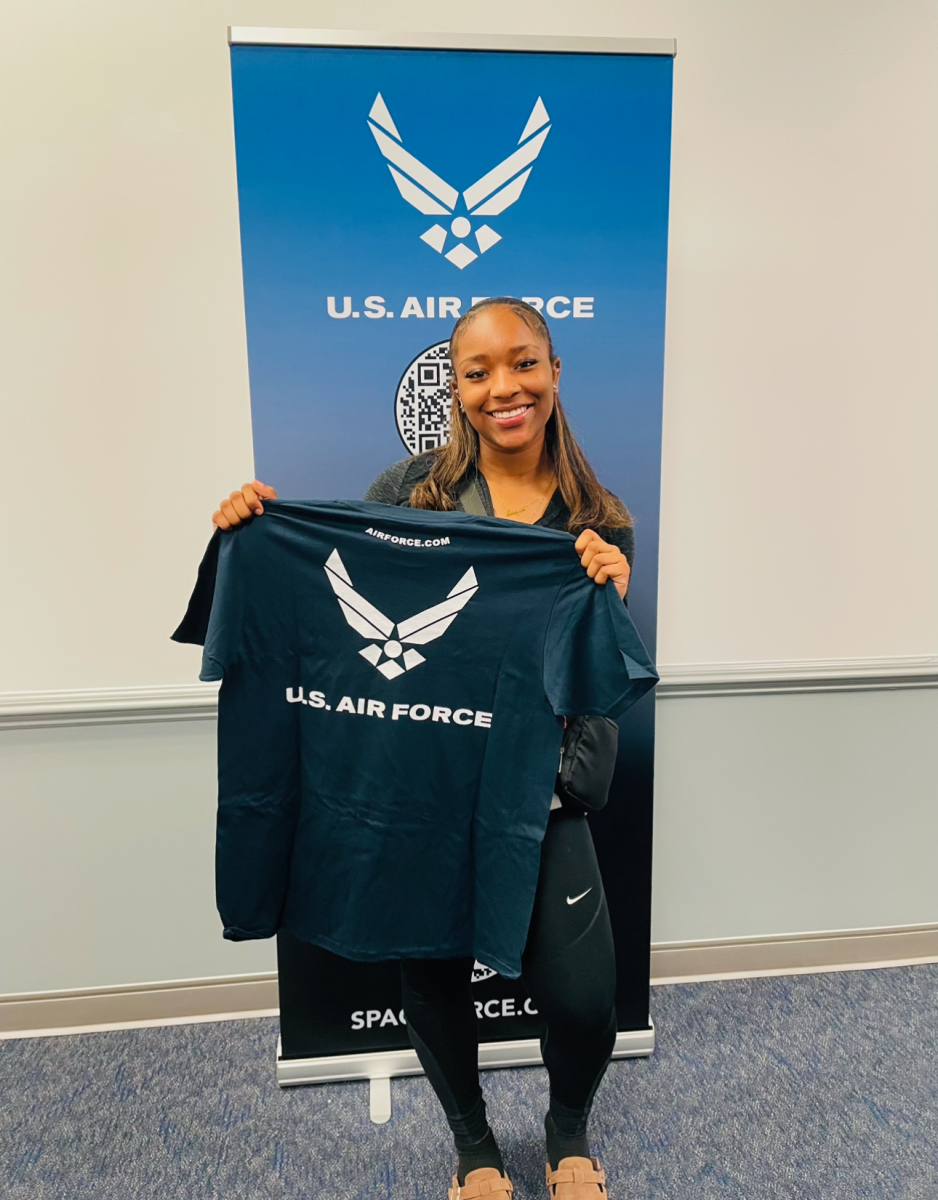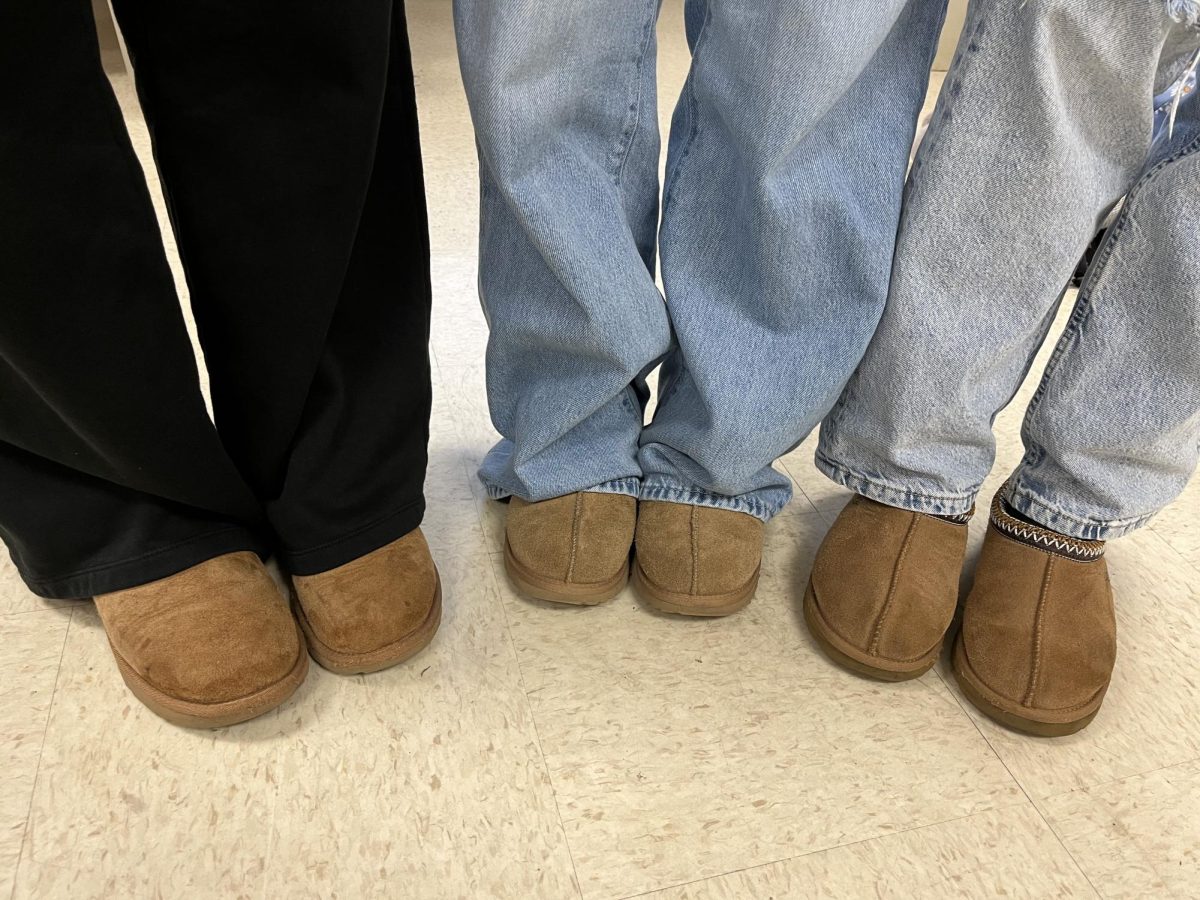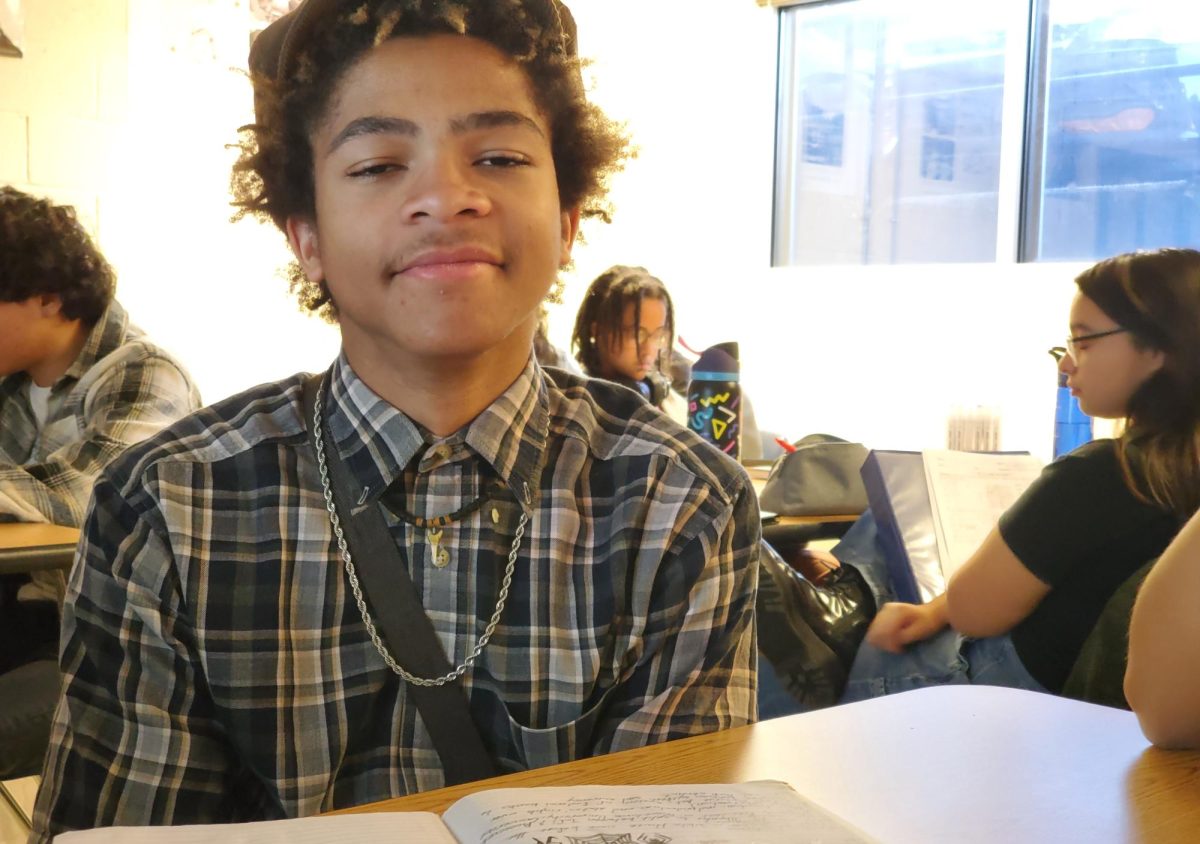Disclaimer: Some of the comments about the military and service do not reflect the U.S. Military as a whole but only the experiences and opinions of a few.
‘What are your plans for after graduation?’ Faced with this question, most students might respond that they are planning on going to college, attending a technical school or entering straight into the workforce. However, students like Aniya Rouser (12), Autumn Chatman (12) and Alexandra Shirley pursued an alternative route: they enlisted in the military.
Rouser is a fourth-year cadet in White Station High School’s (WSHS) JROTC program, and she will officially become a member of the U.S. Air Force once she completes the seven-week-long Basic Training after graduation. The U.S. Military has several initiatives to help pay for the college education of those enlisted, whether they pursue that education before or after completing their service.
“ROTC made me see how the military is very important — and also [that] college is a great decision to go to,” Rouser said. “But, I also feel that [for] the financial part of college, the military is a big help to that, and that’s what I want to do: go to school for free, basically, travel, get my degrees and not have to pay a dime.”
Chatman is also a fourth-year cadet in WSHS’s JROTC program and is the commander of the Unarmed Drill Team, which is a competition team focused on performing synchronized movements without carrying a rifle. Her father’s positive experiences as a member of the Air Force influenced her decision to enlist.
“I really think my decision [to join the Air Force] was solely based on my father’s experience,” Chatman said. “He would come home to me and my siblings and tell us so many stories and good memories that he’s had by going to work every day and how fun it was — just the environment. He was in Security Forces.”
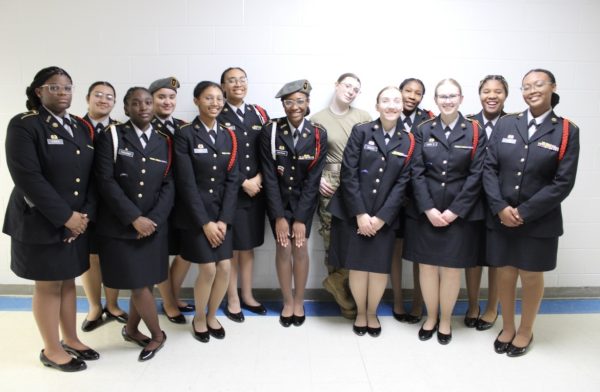
Shirley is a second-year midshipman, an officer-in-training, in the U.S. Naval Academy. She graduated from WSHS in 2022 as the Battalion Commander of WSHS’s JROTC Battalion. She was accepted into both the U.S. Military Academy at West Point and the U.S. Naval Academy, but she ultimately decided to enlist in the Navy.
“The Navy is the branch that does most of the military’s diplomatic and international relations work, which makes sense as we have our ships operating all across the world, and so every day we have to do diplomatic and international relations-type stuff,” Shirley said. “I’ve always been really interested in foreign language [and] travel and I could see myself in the Navy wanting to do some kind of international relations work.”
The military, as a career field, is strongly driven by values and discipline; this emphasis is reflected in their rigorous training of enlisted members, in which they have highly regulated schedules and often wake up at the crack of dawn for mandatory physical training sessions. At the Naval Academy, the first year is called the “plebe year,” and is typically more disciplined and physically rigorous than later years of education.
“[Attending a service academy] is really, really different,” Shirley said. “During plebe year, you have all of these extra rules and responsibilities that the upperclassmen don’t have. Typically, [as a plebe], you wake up at 5:00 [a.m.] most mornings as you have mandatory workouts four days a week and then you have mandatory professional development trainings during the lunch hour most days of the week. Most plebes have 17-18 credits, and it goes up or down as an upperclassman depending on your major.”
Following the plebe year, the focus on explicit military training diminishes and is replaced by more traditional academic course loads. However, the highly disciplined, highly regulated training returns in midshipmen’s fourth year, in which they prepare for their careers as full Navy officers.
“I came into the Academy very much expecting [the heavy emphasis on military training in plebe year], but as an upperclassman, I would say there is a much heavier focus on academics, and that I wasn’t necessarily expecting,” Shirley said. “I was expecting the focus on military training to continue pretty evenly throughout all four years.”
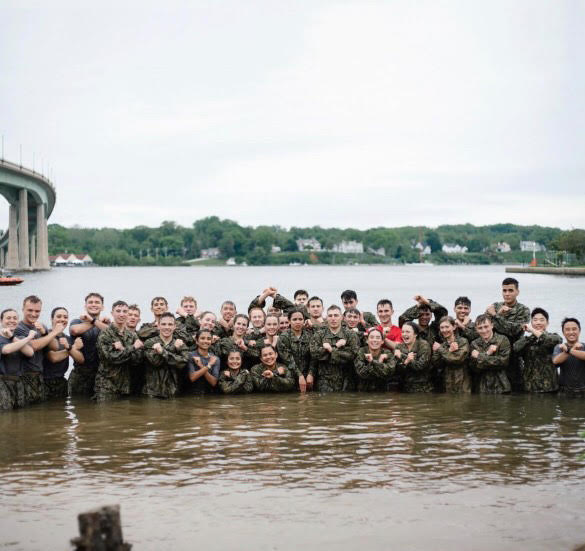
The onboarding process for high schoolers who want to enlist in the military involves a Military Entrance Processing Station (MEPS) evaluation, which is composed of getting a medical evaluation, taking a physical fitness test, taking the ASVAB test if not previously taken, signing a service contract and finally taking the Oath of Enlistment. Though the time it takes to fully complete the MEPS evaluation varies, it generally takes a full day.
“MEPS is a processing station for you to get your health records done, making sure that you’re basically healthy, making sure that you don’t have any unknown health problems, making sure you are in the right weight category, and also to test your personality and mak[ing] sure you aren’t crazy or anything,” Rouser said.
The standard contract for direct enlistment into the Air Force is a four-year contract — with an optional two-year extension for a total of six years. Many people post-service enter the civilian workforce or pursue higher education.
“I want to sign up for the six-year [contract], and then I want to actually be in the military until I retire,” Chatman said. “My visions for after the military would possibly be real estate or owning my own business … I’m hoping that going through the military and seeing exactly what I like to do and what I don’t like to do … [will show me] … something that I can pursue after the military as far as business-wise.”
After graduating from the Naval Academy, Shirley will become a Naval Officer, allowing her to receive higher pay and pursue more management and leadership-based careers than her enlisted counterparts. As some career paths such as Aviation and Surface Warfare require full physical ability, the Navy often reserves many of its less-physically involved positions for those with medical or physical restrictions.
“I want to commission as a Cryptologic Warfare officer, which is in the Information Warfare community; [it’s] more on the technical side … and works with the Navy’s enlisted linguists,” Shirley said. “At the Academy, typically those jobs are reserved for people who are physically disqualified … so my chances of getting that are pretty low. I think the plan for now is to shoot my shot, apply for Cryptologic Warfare Officer, and then if I don’t get it, I hope maybe [for] Surface Warfare or Aviation.”
Enlisting in the military — in any branch — is an extensive commitment. Many people may doubt the perseverance and resolve of those who choose to pursue this career right out of high school. Rouser offers the following advice for current high schoolers thinking about enlisting:
“Don’t let anyone else’s comments or opinions affect how you want your future to go,” Rouser said. “If you know that you are certain about something, stick to it. If you are 100% about it, stand on it, and don’t let it change — and have fun.”


































